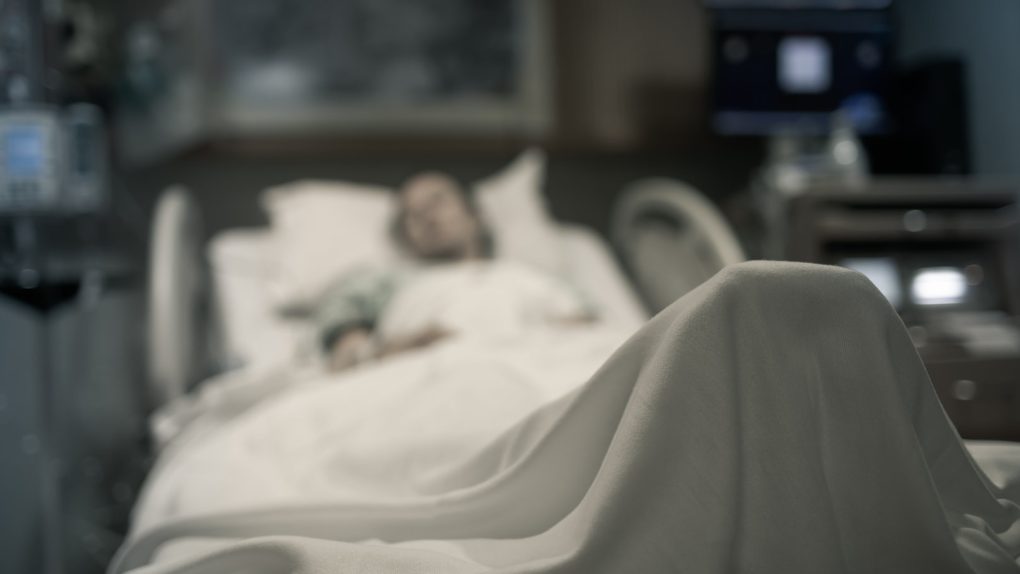- A promising drug being developed to treat COVID-19 failed to show efficacy with severe coronavirus cases.
- Eli Lilly announced that it has terminated a study evaluating the efficacy of the monoclonal antibody drug in hospitalized patients.
- ”Bamlanivimab [LY-CoV555] is unlikely to help hospitalized COVID-19 patients recover from this advanced stage of their disease,” the company said in its announcement.
- Lilly continues to study the drug in other trials and has already requested an emergency use authorization to treat mild to moderate cases of COVID-19.
New coronavirus cases are surging yet again, and thousands of people are dying every week. But the world has come a long way since the early days of the pandemic when it comes to treatments. The virus is spreading like wildfire, as many people are failing to observe the safety measures that can reduce transmission. The more people get infected, the more people will die. But doctors are able to save more lives than before thanks to some therapies that can prevent COVID-19 complications and speed up recovery.
In search of a coronavirus cure, researchers have taken one of the three possible avenues. Some came up with vaccine candidates, and a vaccine might be available to at-risk people by the end of the year. Others repurposed existing drugs for COVID-19 — remdesivir, dexamethasone, and blood thinners are examples that have shown a degree of efficacy. And others are developing brand new drugs, including a type of medicine that should work quite well against the new pathogen. Those are the monoclonal antibody drugs that act much like a very potent plasma transfusion, offering the recipient a high dose of neutralizing antibodies that should block the virus from infecting cells. Monoclonal antibodies can clear the virus or even theoretically provide temporary coronavirus immunity to healthy people. But as promising as these drugs might sound, we’ve just learned they have limitations, and they might not work in the cases that matter most.
Several companies are working on antibody drugs around the world, but two of them are better known than others. Regeneron has a two-antibody cocktail that President Trump received during his COVID-19 recovery. The company has already applied for emergency use authorization (EUA) with the FDA. Eli Lilly is the second, as the company also applied for an EUA even before Regeneron’s announcement. But Eli Lilly revealed a few days ago that it had to halt one of the clinical trials it’s conducting because of a mysterious side effect that wasn’t detailed to the press. The study was paused out of “an abundance of caution” on October 13th.
The National Institutes of Health, a sponsor of the trial, said on Monday that the antibody treatment posed no significant safety risk for patients, according to NPR. But Eli Lilly researchers concluded that the drug couldn’t help patients who are already experiencing severe COVID-19 complications. ”Bamlanivimab [the LY-CoV555 monoclonal antibody] is unlikely to help hospitalized COVID-19 patients recover from this advanced stage of their disease,” the company said.
Lilly combined the drug with remdesivir for this particular stage of the trial. President Trump received a similar combination of meds when he had COVID-19 a few weeks ago. However, Trump got the Regeneron cocktail first before he received the remdesivir regimen, and he also wasn’t experiencing any severe complications at the time.
This particular Lilly trial has been terminated, in what seems to be an unexpected blow for this particular COVID-19 therapy. However, we’ve seen other therapies fail in trials, including hydroxychloroquine, tocilizumab, and lopinavir/ritonavir. Most recently, the World Health Organization concluded that remdesivir can’t prevent COVID-19 deaths. But other studies show that the antiviral can be helpful if administered early in the illness. Furthermore, the plasma studies available so far also showed they could benefit patients if transfusions are rich in potent antibodies, and if they’re administered soon after hospitalization. All hope is not lost because the same might apply to Eli Lilly’s monoclonal antibody drug — it could prove to be a very effective COVID-19 therapy when administered early on.
Lilly will continue to run other trials. The company remains “confident … that bamlanivimab monotherapy may prevent progression of the disease for those earlier in the course of COVID-19.” While Lilly’s ACTIV-3 trial was halted, the various other studies might yield better results. The company already used data from a study of non-hospitalized patients with mild COVID-19 (BLAZE-1) to request EUA to treat mild to moderate illnesses in high-risk patients.
While Eli Lilly failed to prove the drug’s efficacy against severe COVID-19 cases, other monoclonal antibody studies might have different results. All the companies developing monoclonal antibody drugs for COVID-19 make use of different antibodies as well as various antibody combinations.








